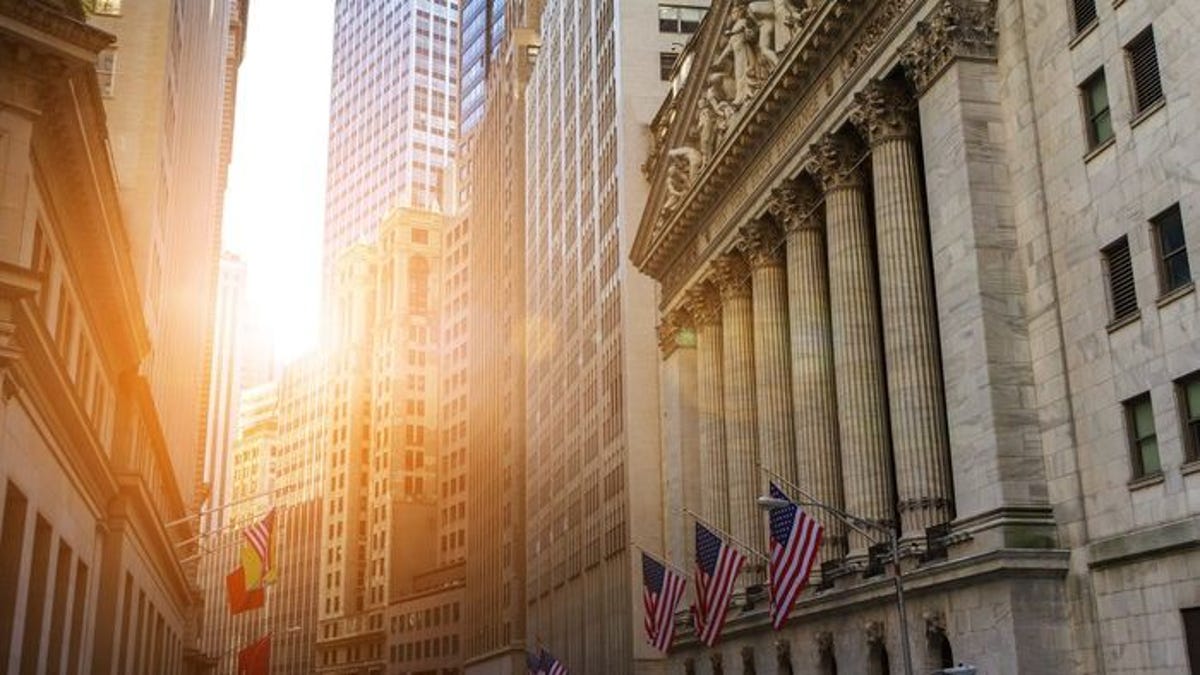LATEST FINANCIAL NEWS
Big Tech leads stocks mostly higher on vaccine hopes
Jessica Menton
| USA TODAY
COVID-19: Pfizer’s vaccine candidate shown to be 90% effectivePfizer and BioNTech released early study results indicating that their vaccine prevented more than 90% of infections with the virus that causes COVID-19.U.S. stocks drifted mostly higher Wednesday, closing near all-time highs on a rebound in technology stocks as signs of a COVID-19 vaccine sparked hopes of a quicker-than-expected economic recovery.Still, an early rally on Wall Street lost steam by the closing bell, leaving major indexes mixed. The Dow Jones industrial average had earlier looked like it could close at record highs, but new restrictions in New York and California helped deflate the market’s gains. The blue-chip average fell 23.29 points, or 0.1%, to 29,397.63.The Dow declined shortly after news crossed that New York would put restrictions on bars, restaurants and gyms as COVID-19 infections rose in the state.The S&P 500, meanwhile, climbed 0.8% to 3,572.66, thanks largely to gains in big technology companies that rebounded Wednesday from steep losses. The Nasdaq Composite jumped 2% to 11,786.43, after dropping 1.4% a day earlier.Markets have moderated after rallying earlier this week after Pfizer announced Monday that a potential COVID-19 vaccine it’s developing with German partner BioNTech may be 90% effective, based on early but incomplete test results. But experts have cautioned that many challenges remain, even if the shot is approved for use.Investors are reassessing the high prices of Big Tech stocks that carried the stock market through the pandemic on expectations they’ll continue to thrive if the economy is in lockdown mode.Biden and unemployment benefits: What a Joe Biden presidency could mean for the next COVID-19 stimulus packageJoe Biden economic plan: What Biden means for the economy, your finances and another COVID-19 stimulus packageThe rising hopes for a COVID-19 vaccine had pushed investors to reorder which stocks they saw winning and losing, with investors opting to scoop up shares of beaten down value stocks in industries like energy and financials that were battered early on in the pandemic. Value stocks are often defined as companies whose shares trade at cheap levels.That had briefly pressured tech companies and other growth stocks earlier this week that have thrived in a stay-at-home economy. “During much of 2020, the stay-at-home stocks, which tend to be more growth oriented, have outperformed value by a substantial margin. Recent market movement and the Pfizer announcement could be the start of a reversal as people begin to see a future with a COVID-19 vaccine,” Gregory Weimer, wealth manager at financial planner Confluence Financial Partners, said in a note.“It will take time for this rotation to complete its course. Investors who are patient and that have stayed diversified during these challenging times will be rewarded in the long run,” Weimer added.Big Tech stocks had borne the brunt of this week’s dramatic reordering, but they clawed back some of those earlier losses. Microsoft rose 2.6%, cutting Its loss for the week to about 3%, for example. Amazon gained 3.4% to pare its weekly loss to roughly 5%.The Dow was dragged lower in part by American Express and Walt Disney, two stocks that shot up this week after news of a potentially successful vaccine sent travel, entertainment and tourism companies surging. Elsewhere in the market, some of the massive rotation that swept through early this week also gave up momentum.Slightly more stocks in the S&P 500 fell than rose, and energy and bank stocks gave back a bit of their huge gains from Monday and Tuesday. Stocks of smaller companies, which tend to move more with expectations for the economy, were also lagging the market, and the Russell 2000 index of small-cap stocks fisnished flat.Clearing uncertainty about U.S. leadership after Democrat Joe Biden clinched the last of the 270 electoral votes needed to become the next president has helped push the S&P 500 up about 9% this month, even as some Republicans including Senate Majority Leader Mitch McConnell rally behind President Donald Trump’s efforts to fight the election results.Many risks remain, the biggest perhaps whether investors have become too convinced about a potential COVID-19 vaccine just as coronavirus counts surge at worrying rates across the U.S. and Europe, prompting some governments to restore restrictions on businesses.Republicans controlling the Senate on Tuesday unveiled a government-wide, $1.4 trillion spending bill to support the pandemic-ravaged economy. The mostly bipartisan measure faces uncertain odds amid the post-election tumult in Washington.With fresh help for the U.S. economy from Congress still undecided, pressure is on central banks to step up support for markets.Still, optimism remains across markets.“The results of the election indicate that a Biden presidency is likely to lead to higher spending. In turn, spending would support economic growth, while any higher taxes or regulations would be constrained by what looks likely to be a Republican-controlled Senate,” Brad McMillan, chief investment officer at investment adviser Commonwealth Financial Network, said in a note. “From a policy perspective, markets see a case for more of the good stuff and less risk of the bad stuff. That outlook is what may take markets even higher for the rest of the month,” McMillan said.Trading in the U.S. bond market is closed for Veterans Day, after Treasury yields climbed this week on hopes for a healthier economy and expectations that could lead to a pickup in inflation. The yield on the 10-year Treasury is close to its highest level since March.European markets closed broadly higher and Asian markets ended mixed.Contributing: The Associated Press
Source link









